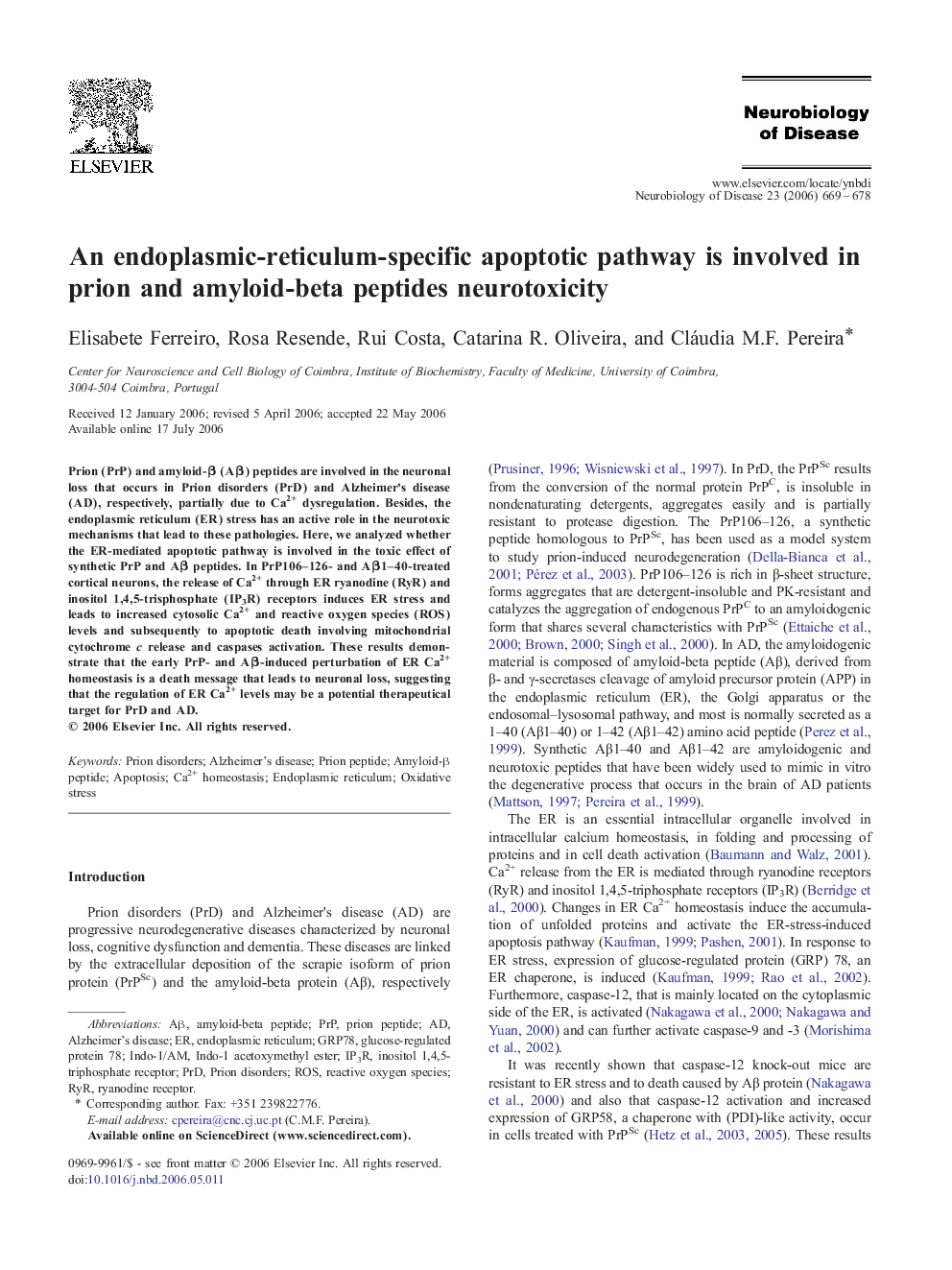| کد مقاله | کد نشریه | سال انتشار | مقاله انگلیسی | نسخه تمام متن |
|---|---|---|---|---|
| 3070637 | 1580751 | 2006 | 10 صفحه PDF | دانلود رایگان |

Prion (PrP) and amyloid-β (Aβ) peptides are involved in the neuronal loss that occurs in Prion disorders (PrD) and Alzheimer's disease (AD), respectively, partially due to Ca2+ dysregulation. Besides, the endoplasmic reticulum (ER) stress has an active role in the neurotoxic mechanisms that lead to these pathologies. Here, we analyzed whether the ER-mediated apoptotic pathway is involved in the toxic effect of synthetic PrP and Aβ peptides. In PrP106–126- and Aβ1–40-treated cortical neurons, the release of Ca2+ through ER ryanodine (RyR) and inositol 1,4,5-trisphosphate (IP3R) receptors induces ER stress and leads to increased cytosolic Ca2+ and reactive oxygen species (ROS) levels and subsequently to apoptotic death involving mitochondrial cytochrome c release and caspases activation. These results demonstrate that the early PrP- and Aβ-induced perturbation of ER Ca2+ homeostasis is a death message that leads to neuronal loss, suggesting that the regulation of ER Ca2+ levels may be a potential therapeutical target for PrD and AD.
Journal: Neurobiology of Disease - Volume 23, Issue 3, September 2006, Pages 669–678